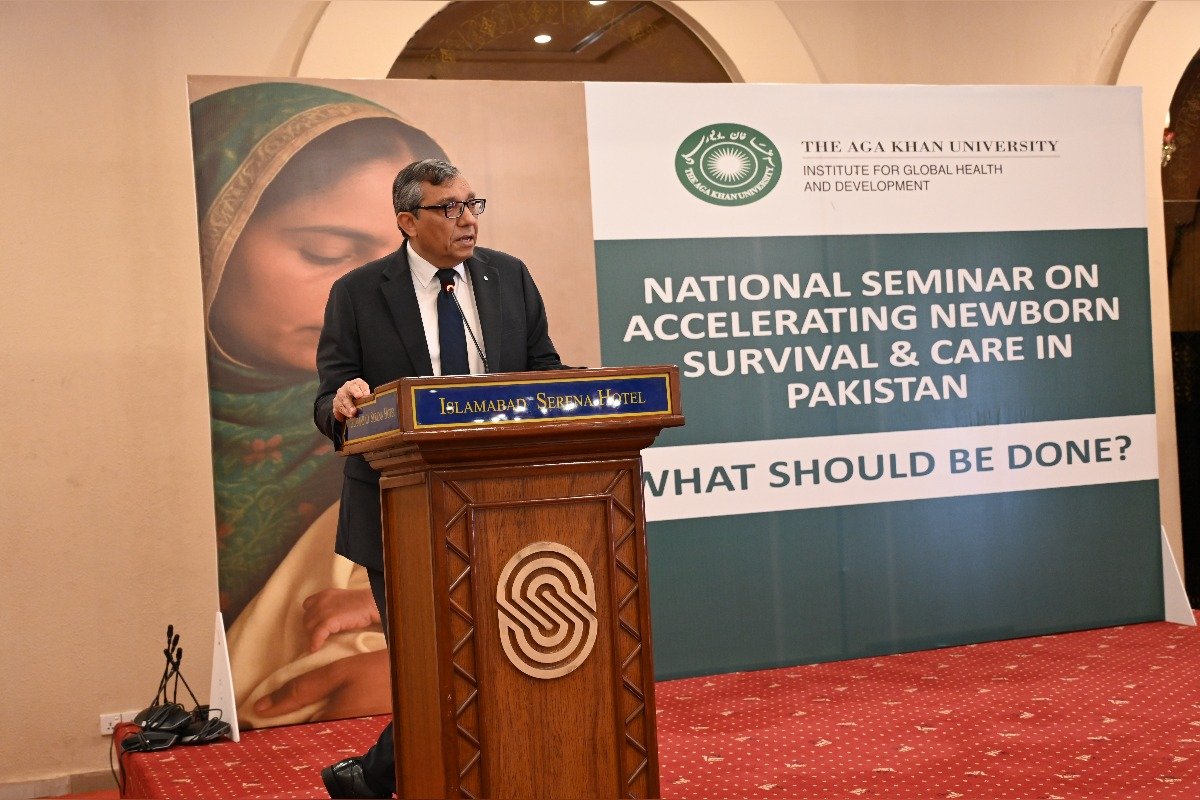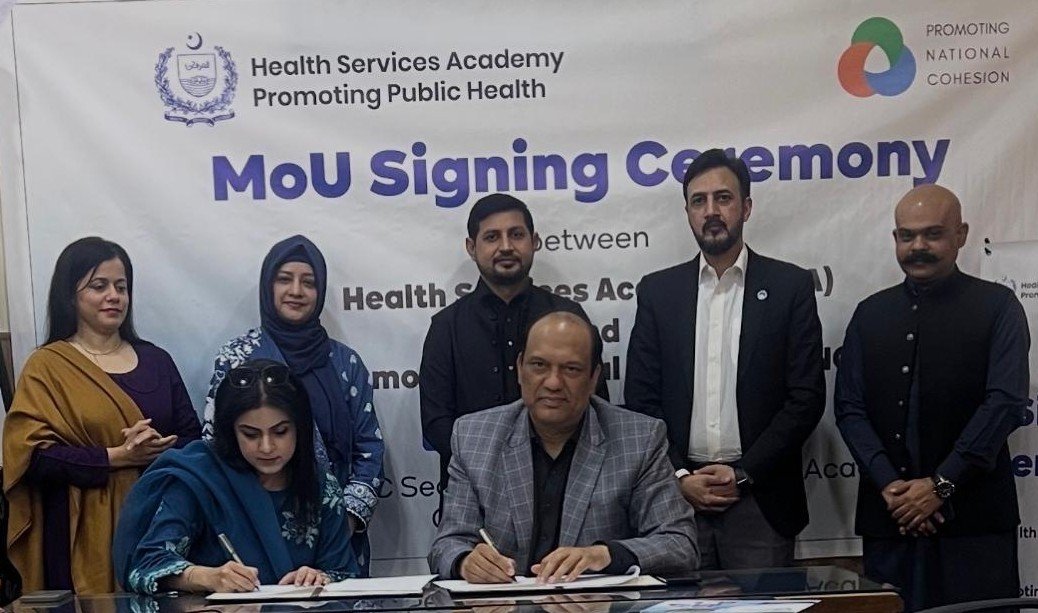“There is an urgent need to reduce disparities in newborn care across provinces and districts,” said Dr. Zulfiqar A. Bhutta, Founding Director of IGHD.
Pakistan has an unacceptably high burden of neonatal mortality rate with 40 lives lost per 1000 live births, each year from largely preventable causes. Globally, there is extensive research continuing towards protecting neonatal health. For instance, a new research focuses on enhancing neonatal care and avoiding difficulties in premature newborns’ vision.
To confront this crisis, the Institute for Global Health and Development (IGHD) at the Aga Khan University united policymakers, clinicians, researchers, and development partners. IGHD arranged a National Seminar on Accelerating Newborn Survival and Care in Pakistan. The Institute for Global Health and Development (IGHD) at Aga Khan University is a leading center for research, policy engagement, and capacity building in low- and middle-income countries.
There are several factors affecting neonatal mortality rate in Pakistan. The seminar highlighted persistent gaps in availability, quality, and equitable coverage of essential services for newborns. It also aligned practical, evidence-based actions to save newborn lives nationwide. This includes focusing on district-level solutions & strengthening advanced support i.e. level II care. It also includes a rapid scale-up of proven practices across provinces and regions.
“There is an urgent need to reduce disparities in newborn care across provinces and districts,” said Dr. Zulfiqar A. Bhutta, Founding Director of IGHD. “Simple, proven practices like helping babies breathe, supporting breastfeeding, and skin-to-skin care can save countless newborn lives and improve maternal health.”
National Technical Working Group on Newborn Care
Professor Ayesha Isani Majeed, Director General Health at the Federal Ministry of Health Services was Chief Guest. As Pakistan Neonatal Mortality Rate is 40 Lives per 1000 Births. She announced the formation of a National Technical Working group to prioritize newborn care and raise its visibility within government platforms. She also confirmed that routine immunization has been designated a priority within the National Immunization Management System. Moreover, she called on stakeholders to champion the cause.
“Seminars like this one provide a valuable opportunity to connect research with policy dialogue. The provinces and institutions can consider which approaches are most practical and effective within their contexts,” explained Professor Majeed. “By learning from the data and from each other, we can make meaningful progress for newborn health outcomes.”
The event underscored that Pakistan already has the knowledge and tools to prevent most newborn deaths. What is needed, stated Dr Shabina Ariff, Professor of Paediatrics and Child Health at AKU, “is consistent implementation, quality assurance, and accountability so that every mother and newborn receives timely, high-quality care.”
Follow FactFile for more updates.





